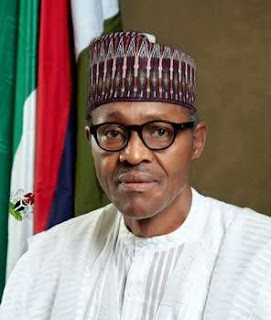In-fighting within Buhari’s men is seriously affecting anti-graft war by Ebuka Nwankwo
With the level of in-fighting amongst President Buhari’s corruption czars, it is very unlikely that corruption would be given an uppercut, not to speak of defeating it.
The President needs to get his house in order: it is only the effective coordination of anti-corruption strategies between relevant agencies that can ‘’kill corruption’’.
At the moment, animosity and ‘bad blood’ are hampering a meaningful coordination. This sends a message: there is no robust synergy to fight corruption yet. And this message is loud and clear.
The animosity within the President’s ‘corruption team’ reached a crescendo when the Senate refused to confirm the appointment of Mr. Ibrahim Magu as the chairman of the EFCC. The Senate’s rejection was based on a report from the DSS – an establishment which reports directly to the President.
The DSS says Magu enjoys an ‘unholy’ relationship with AVM Umar Mohammed (retd), a very wealthy businessman who has many aircraft to his name under his company called Easyjet. (Umar Muhammed’s wealth has always astonished his peers who worked with him in the Nigerian Air Force.)
Umar Mohammed was nominated, in August 2015, into the Arms Procurement Probe Panel constituted by the NSA, Babagana Monguno. (The President directed this panel to investigate procurement of hardware in the military between 2007 and 2015.)
The Arms Probe Panel comprised ex-military men, except for Magu, who was just a staff of the EFCC at the time he got into this panel. This sent the message that Magu was in the good books of Monguno
The composition of this panel might have caused some friction between the ONSA and DSS: Officers of the DSS weren’t included in this probe panel. It didn’t look like Monguno had consulted the DSS nor the SGF before constituting this panel.
And this was evident from Umar Mohammed’s arrest after the DSS reportedly presented damning reports against him to the President, in June 2016. Umar Mohammed was arrested while he was still doing his job in the probe panel. And, of course, the DSS ransacked his Abuja home – where the DSS said it found classified documents that ought not to be there — the same way judges’ homes were searched. Umar Mohammed is still being investigated for financial corruption by the DSS. (Magu believes that only the EFCC is constitutionally empowered to handle cases of financial corruption.)
The disunity within Buhari’s men became more visible in November when Magu told the House of Representatives that the DSS had no business raiding judges’ homes – apparently the same way Umar Mohammed’s home was raided — as corruption did not constitute a threat to national security.
Magu also fired some other criticism at the DSS. But the DSS boss, Lawal Daura, never offered any public response to Magu. And silence, Chinua Achebe says, is ominous.
The drama had just began. Surprisingly, the ICPC’s position was different from Magu’s. The then ICPC boss, Paul Ekpo, argued that he found nothing wrong with the DSS raid, and that the service could function as a police force.
But nothing exposes the level of in-fighting as the opposition, by the EFCC, to the money laundry and prevention bill sent to the Senate through the AGF. EFCC’s strong opposition to this bill showed it never had any input into the bill. The EFCC feared the bill would whittle down its powers.
This shows friction between the AGF and the EFCC. To make matters worse, the AGF had bypassed the EFCC on many occasions by sending petitions of financial corruption it received against judges directly to the DSS. Nothing shows lack of trust like this.
There is no way corruption, with the scale it is in Nigeria, would be won with the level of incoordination and distrust within the top agencies responsible for the fight against corruption.
You don’t need to be a soothsayer to know that information within these agencies aren’t flowing at the speed it should. The velocity of flow of information determines the duration of a corruption trial.
Unless the President puts his house in order, his anti-corruption agencies would continue to carry their animosity and disunity to court, hereby losing corruption cases.
In the meantime, those senators who don’t like Magu and think he’s partisan are very happy with the DSS’s letter. It really doesn’t matter that the allegations against Magu could be regarded as child’s play when compared to the allegations against some of them.


Comments
Post a Comment